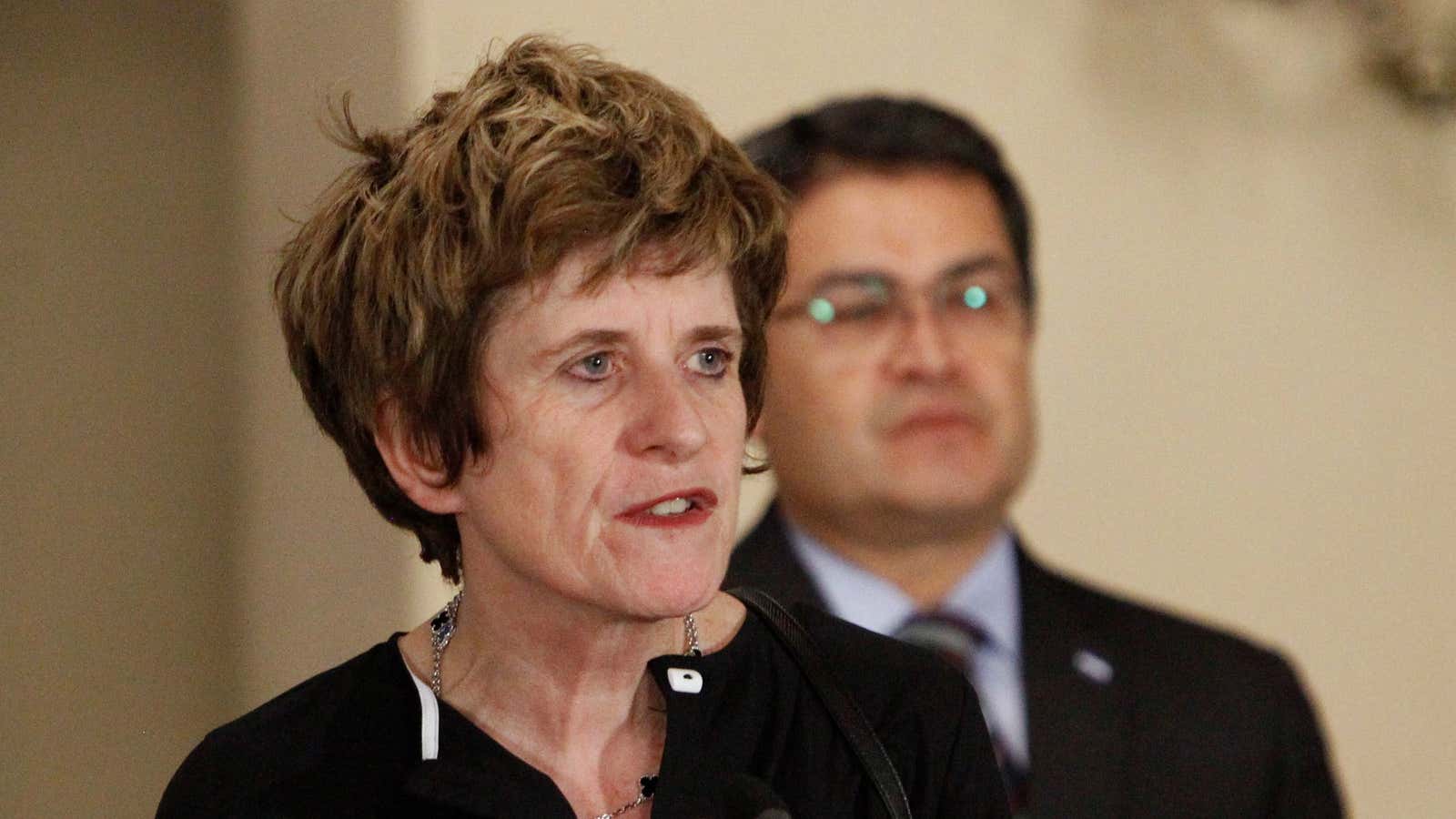For decades, America has thought of itself as a “shining city on a hill” (paywall), a beacon of democracy and liberalism for the rest of the world to follow. But globally, that reputation has been tarnished in the eyes of many, partially as a result of the Trump administration’s rollbacks of environmental protections, human rights, and, most recently, abortion rights. Now a top UN official has accused the US of catching a bug of illiberalism—and of passing it on to the rest of the world.
“When the United States starts to sneeze under the force of the pneumonia of afactual, illegal, and ascientific policy, everybody starts to catch the same cold,” said Kate Gilmore, United Nations deputy high commissioner for human rights, today (June 3) at the Women Deliver conference in Vancouver, Canada.
Gilmore spoke at length about the Trump administration’s decision to reinstate a “global gag rule,” which denies US government aid to individuals and organizations who perform abortions or give information about the procedure. The Trump administration has also championed abortion rights rollbacks domestically, culminating in a wave of state legislatures from Louisiana to Ohio passing restrictive abortion laws.
Activists have said these policies will strip vulnerable women both in the US and abroad of badly-needed family planning services and lead to an increase in unsafe abortions. They say these policies are based on junk science; like president Trump’s false assertion at a rally in April that, after babies are born, doctors and mothers can “determine whether or not they will execute the baby.”
“This disregard for truth is so deeply troubling,” said Gilmore. In challenging women’s rights to reproductive health, Gilmore said the US was contributing to rolling back “the underpinnings of a whole global order” based on a global commitment to lowering maternal mortality and promoting women’s health. Says Gilmore: “Whatever the administration believes it is entitled to do, it is not entitled to its own facts.”
This story is part of How We’ll Win in 2019, a year-long exploration of workplace gender equality. Read more stories here.




